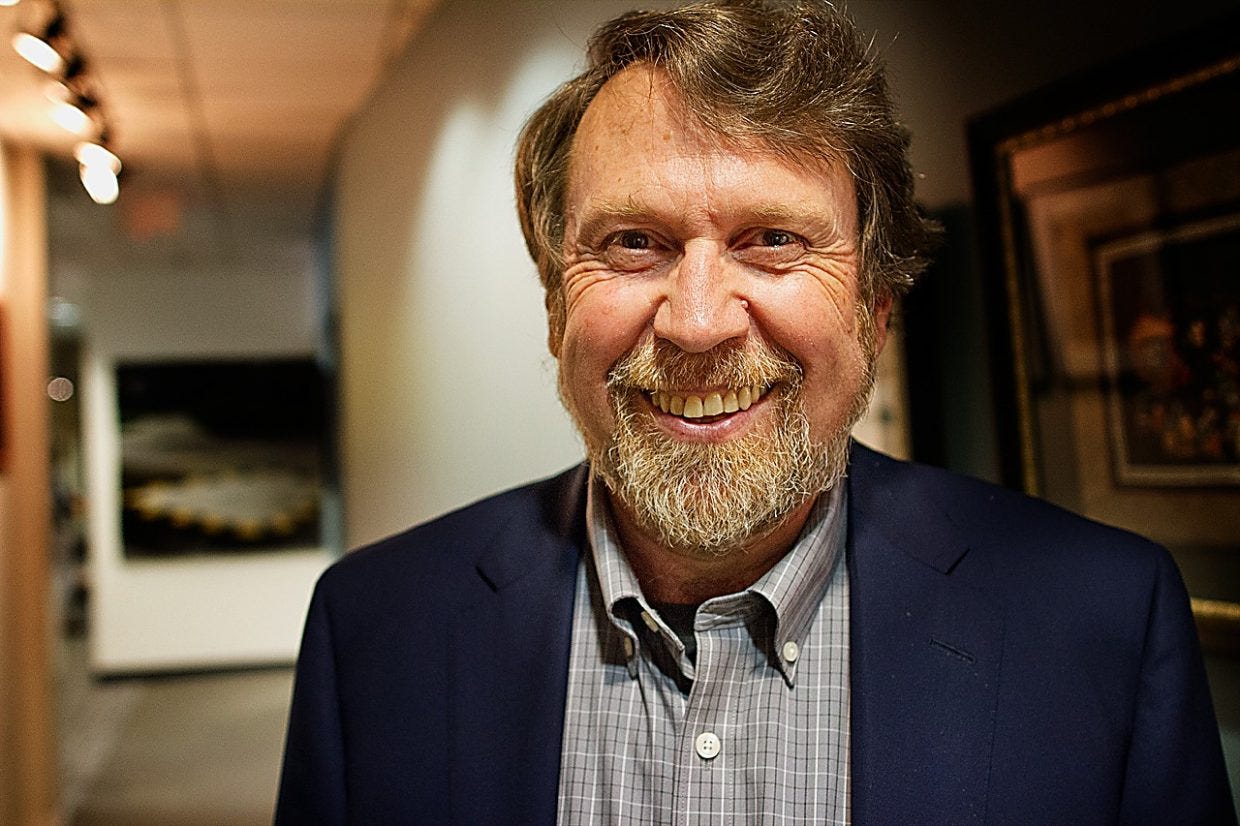It’s fair to say that Daniel James Brown’s The Indifferent Stars Above changed my relationship to reading for all time. I was in college and the cover caught my eye at the library. I had always been a reader, but mostly novels, memoirs, and self-help. I was sucked in Brown’s narrative about the Donner party from page one and didn’t look back until I flipped the final page. I had no idea that a history book could be so engaging. I then read Under a Flaming Sky, followed by The Boys in the Boat as soon as it came out. To say I’m excited to have been able to ask Daniel some questions about his reading is an understatement. It’s my great pleasure to present a few bookish questions with Daniel James Brown.
1. It's clear from your books that you love a great story—no matter the era or topic. Are there books or authors that particularly jump-started your own love for history and for telling forgotten stories?
Yes. Absolutely. I’m all about story. I was an English major and have always been a big reader but what really got me interested in doing the particular kind of writing I do—narrative nonfiction—was reading people like Laura Hillenbrand, Timothy Egan, and Erik Larson. All of them know how to take something from history and bring it to life by introducing us to interesting personalities who lived through it. When a good story is based strictly on actual events from history, and populated by compelling characters, that adds a great deal of value for me.
2. I'm sure most of your reading, especially when you're in a season of writing, is non-fiction: histories, first-hand materials, documents, etc. What do you read for fun/entertainment in your off hours?
True. During the three to five years that I’m working on a book I seldom have time to read anything that isn’t related to what I’m writing. I enjoy that, though. It gives me an opportunity to really learn a lot about things I might otherwise never have encountered. Sometime those are very obscure things like the dynamics of how wildfires develop or what starvation does to the human body. It’s not always light reading but I have a pretty voracious appetite for many different kinds of information so it suits me.
3. I grew up in Minnesota and had never heard of the Hinckley fire until I read Under a Flaming Sky. How did you stumble on that story and how did it become your first book?
My mother’s father lived through the fire, though his father, my great-grandfather perished in it. As I was growing up I heard stories about it and I always wondered how it was that hundreds of people could die in a forest fire. I mean why didn’t they just get out of its way? My mother had a box of old newspaper clippings and letters and books related to the fire and I dug into that and discovered that it was a really interesting event with lots of acts of incredible heroism. So I just decided to see if I could put it in book form, more or less as a hobby, and that—to my surprise—eventually wound up being published, though on a pretty small scale at first. But it turned out to be a pretty successful book and that led to the books that have followed.
4. I think Facing the Mountain is your most important book to date. Are there any related works, either histories or firsthand accounts, that you'd recommend to modern readers? Any favorite WWII reads? I'm always interested in source material!
There are dozens of books about the incarceration of the Japanese Americans, and at least several about the 442nd Regimental Combat Team, but there are very few that pull these together into a larger story seen through the eyes of a small number of real-life characters as I’ve tried to do in Facing the Mountain. But as for source material I relied heavily on the first-hand accounts of people who lived through the experiences I write about. The greatest single collection of those is the Densho archives, which holds the video-taped oral histories of several hundred Japanese Americans. It’s freely available for anyone to view online at Densho.org and it’s a great way to immerse yourself in the history I’m writing about in Facing the Mountain.
5. What are you reading and enjoying now that your book is out in the world and you can relax a little bit? What's next on your list?
I’m back to reading more narrative non-fiction. I’ve recently really enjoyed Mitchell Zuckoff’s Lost in Shangri-La and Hampton Sides’ In the Kingdom of Ice.
6. Any all-time favorite books that have especially stuck with you and/or shaped your thinking over the years? Books that you think about a lot? Fiction, non-fiction, whatever it is.
In non-fiction it would have to be Laura Hillenbrand’s Seabiscut. Again, that’s mostly a craft thing, though I think it also sheds a lot of light on human nature and vividly illuminates the history of America during the Great Depression. In terms of fiction, I am a huge admirer of both Anthony Doerr’s All the Light We Cannot See and Charles Frazier’s Cold Mountain, both of which—aside from being the two most well written modern novels I know of—teach us an enormous amount about the nature of war, human fragility, and human strength in the face of adversity.

